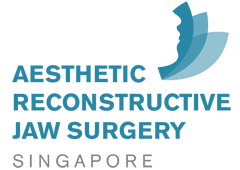Share this
Wisdom tooth surgery ; General Dentist or Specialist?
on May 30, 2019
 Continuing the story of debate on “Better Competency Development for Safe and Quality Dental Care”, this blog discusses the other oft-cited “higher risk” procedure, wisdom tooth surgery. So how complicated is wisdom tooth surgery? What kind of training do dentists need to perform this surgery properly.
Continuing the story of debate on “Better Competency Development for Safe and Quality Dental Care”, this blog discusses the other oft-cited “higher risk” procedure, wisdom tooth surgery. So how complicated is wisdom tooth surgery? What kind of training do dentists need to perform this surgery properly.
Does NUS Dental Faculty teach undergraduates wisdom tooth surgery?
In the sole dental school in Singapore, wisdom tooth surgery has been part of the undergraduate curriculum for decades. Dental students go through a rigorous didactic program covering the etiology of impacted wisdom teeth, indications and contraindications for removal, surgical techniques, complications https://www.aestheticjawsurgery.com/blog/what-to-do-when-your-wisdom-tooth-is-touching-the-nerve-in-the-jaw and their management. They perform clerking of patients presenting with impacted wisdom teeth and present they findings and treatment plan to their supervisors. They also assist in at least four cases of wisdom tooth surgeries perform by instructors who are oral & maxillofacial surgeons and also participate in postoperative review of patients who had undergone such surgeries. In their final year, they are required to perform one or two cases of wisdom tooth surgery under supervision. There is one catch though. Despite a fairly rigorous educational process, the school does not require them to pass a competency test on wisdom tooth surgery. This is because performance of two wisdom tooth surgery cannot achieve competency. Requiring them to pass a competency test would probably need a schedule that requires at least ten cases before they can present for a competency test but that will take too much time and other aspects of the extremely packed curriculum will have to be sacrificed.
What about overseas dental schools?
Requirements for wisdom tooth surgery competency varies tremendously in different schools. Some schools only teach the didactic component with no clinical requirement. Their students may graduate without having done a single wisdom tooth surgery. Some schools may have enough time in their curriculum for ten or more wisdom tooth surgeries to be done by the undergraduates. In Singapore, a significant proportion of registered dentists are graduates of overseas dental schools and so the ability with regard to wisdom tooth surgery is correspondingly varied.
What is the current practice of wisdom tooth surgery in Singapore?
Most general dentists do perform wisdom tooth surgery. Although local graduates may only have done one or two cases in school, they have to serve a government bond of four years in various public health care establishments, such as polyclinics, school clinics, restructured hospitals and military clinics. Through their four years of rotation, many had the opportunities to perform wisdom tooth surgeries. Those who eventually leave for private practice often join established clinics where there are senior dentists to guide them. Of course, some do not like to perform such surgeries and choose to refer them to specialists instead.
Why the need for further training?
As with many surgical conditions, there are simple ones and there are complex ones. The simple ones are within the competency of most general dentists. While the complex ones are best managed by specialists in oral & maxillofacial surgery (OMS). Most impacted wisdom teeth are partially erupted and are located fairly superficially and above the gum. Some are deeply buried within the bone causing pain and resorption to the tooth in front and/or pressing on the nerve inside the jaw bone that provide sensation to the lips and jaw. Others may be located nearer to the lower border of the lower jaw due to cystic changes that pushed it down.
What is a specialist in oral & maxillofacial surgery?
Oral and maxillofacial refers to the mouth, jaws and face literally. A specialist in oral & maxillofacial surgery, aka oral and maxillofacial surgeon, manages diseases, deformities and any conditions in the mouth, jaws and face, usually by performing surgery. In Singapore, like other specialties, basic specialty training is conducted in the form of a residency of three years duration leading to a Master of Dental Surgery from the National University of Singapore. Like other specialties, an additional minimum of two years of practice to build a log book that fulfills a prescribed range and number of cases is needed before one can present for an exit examination. However, unlike other specialties, the cases prescribed in for the log book includes mostly in-patient type cases and surgeries that need to be done in a hospital operating room under general anesthesia. All hospitals, both private and public, have credentialing protocols. Private hospitals are not teaching hospitals and as such do not grant hospital privileges to non-specialists. This effectively limits the graduates of OMS residency programs to work in public teaching hospitals where credentialing can be done for specialist trainees under the supervision of a consultant.
As the scope of OMS is wide, logging the requisite numbers and variety often takes more than two years, depending on the case load of the hospital. In most cases, even after successfully completing the exit examinations and registered as a specialist with the Singapore Dental Council, additional years are spent in public hospitals to further develop surgical skills.
What is an oral & maxillofacial surgeon trained to do?
The scope of work ranges from removing impacted wisdom teeth and dental implants, to head and neck surgery. There is a lot of overlap with other surgical specialties such as ear nose and throat surgery as well as plastic surgery. With regard to wisdom tooth surgery, the broader scope of surgery that an OMS is trained to do enables a different perspective when it comes to minor oral surgery like wisdom tooth surgery.
Does a specialist in OMS better at doing wisdom tooth surgery than a general dentist?
Yes, almost invariably. The workload of an OMS resident consists of a huge volume of wisdom tooth surgeries on a daily basis. Furthermore, training in corrective surgery of jaw deformities, ablative surgery in jaw tumours and reconstructive jaw surgeries enable the OMS to perform wisdom tooth surgeries in many alternative ways to achieve a safe outcome. OMS specialists are also able to better manage the complications of wisdom tooth surgery such as numbness and infection.
Should I always see a specialist?
No, not always. There are many wisdom teeth that can be safely removed by a general dentist who has done a lot of such surgeries. The problem in Singapore is that we do not have a system of publicizing surgical success statistics. Patients seeking wisdom tooth surgery have no means of knowing whether the dentist they are consulting has undergone any additional training. Unlike dental implants, there are no diploma or a post graduate degree for wisdom tooth surgery that a general dentist can display on his name card or website. Good old fashion word of mouth is still the most reliable method of finding a general dentist for wisdom tooth surgery. Oral and maxillofacial surgeons as specialists can identify themselves as such on the internet or calling cards.
Do specialist charge more?
Like implants, treatment is as much a function of the skills of the dentist as well as the location and delivery of the service. It is likely that a specialist will charge more for a wisdom tooth surgery. However, there is a certain benchmark in Singapore which is set by the Medisave withdrawal limit. Most dentists, be it specialist or general, tend to charge at the withdrawal limit or slightly above.
For a large number of impacted wisdom teeth, the difference in final outcome may not be very different whether they are done by a specialist or general dentist. It is important for a general dentist to recognize the complicated ones and refer them for specialist management to maximize the chances of a good outcome for the patient.
Share this
- Jaw Surgery (93)
- Dental Implants Singapore (90)
- Orthognathic Surgery (48)
- Replacing Missing Teeth (26)
- Missing Teeth Options (23)
- Underbite (23)
- Bone Grafting (21)
- Costs (18)
- Facial Aesthetics (18)
- Aesthetics (17)
- dental implants (16)
- corrective jaw surgery (15)
- BOTOX (11)
- Dermal Fillers (11)
- Wisdom teeth (10)
- Fixed Implant Dentures (8)
- Loose Dentures Singapore (6)
- Medisave (6)
- sleep apnea (6)
- Braces (5)
- Dental Pain (5)
- Dentures in Singapore (5)
- Loose Teeth (5)
- Tooth Extraction (5)
- jaw deformities (5)
- bimax (4)
- bone graft (4)
- maxillomandibular advancement (4)
- all-on-4 (3)
- bimaxillary protrusion (3)
- chin implant (3)
- facial asymmetry (3)
- full mouth dental implants (3)
- genioplasty (3)
- immediate implant (3)
- removal of an integrated dental implant (3)
- third molars (3)
- wisdom tooth surgery (3)
- My Dentures Don't Fit (2)
- VME (2)
- bone graft healing (2)
- distraction osteogenesis (2)
- medical tourism (2)
- obstructive sleep apnea (2)
- orthodontics (2)
- plastic surgery (2)
- CT guided dental implants (1)
- Double jaw surgery (1)
- Invisalign (1)
- Periodontal Disease (1)
- Permanent Dentures Singapore (1)
- before and after photos (1)
- facial trauma (1)
- fractured dental implant (1)
- oral appliance therapy (1)
- root canal treatment (1)
- veneers (1)
- vertical maxillary excess (1)
- September 2019 (2)
- July 2019 (2)
- May 2019 (2)
- August 2018 (1)
- October 2017 (1)
- September 2017 (2)
- August 2017 (1)
- June 2017 (2)
- May 2017 (4)
- April 2017 (1)
- March 2017 (1)
- February 2017 (3)
- January 2017 (3)
- December 2016 (1)
- November 2016 (2)
- October 2016 (4)
- September 2016 (9)
- August 2016 (5)
- July 2016 (11)
- June 2016 (14)
- May 2016 (6)
- April 2016 (2)
- March 2016 (1)
- January 2016 (7)
- December 2015 (10)
- November 2015 (4)
- October 2015 (9)
- September 2015 (7)
- August 2015 (1)
- July 2015 (6)
- June 2015 (3)
- May 2015 (7)
- April 2015 (5)
- March 2015 (8)
- January 2015 (5)
- December 2014 (7)
- November 2014 (7)
- October 2014 (6)
- September 2014 (8)
- August 2014 (5)
- July 2014 (7)
- June 2014 (8)
- May 2014 (9)
- April 2014 (10)
- March 2014 (6)
- February 2014 (8)
- January 2014 (3)
Subscribe by email
Email subscription




No Comments Yet
Let us know what you think